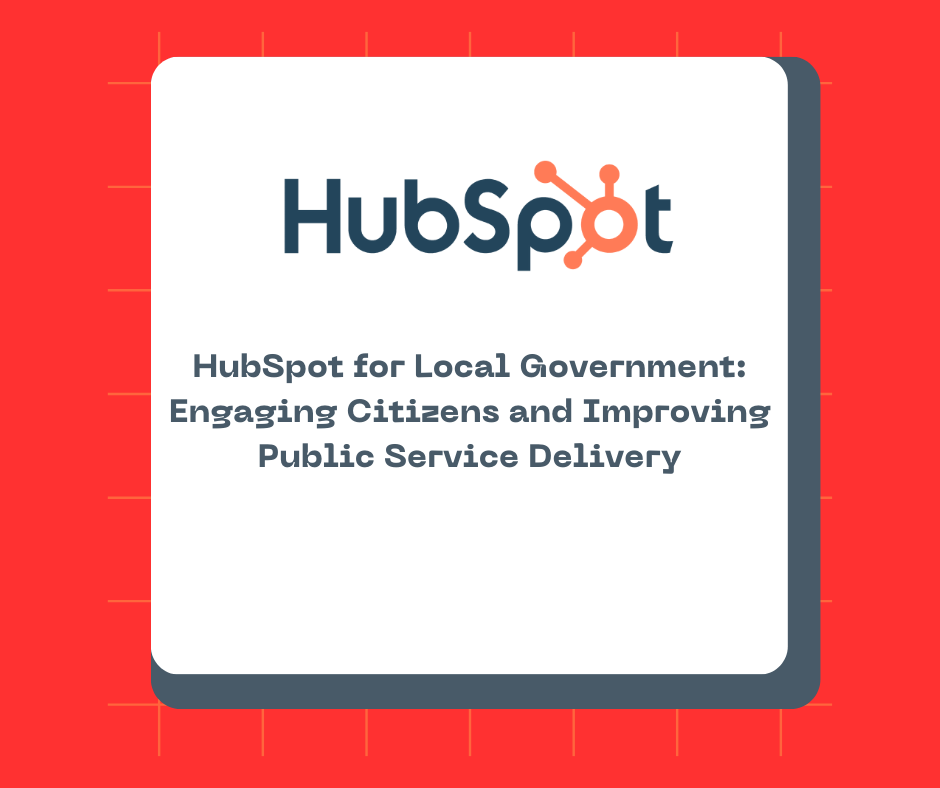In today's digital age, local governments are increasingly turning to modern technology solutions to enhance their interaction with citizens and improve public service delivery. HubSpot, primarily recognized for its prowess in the business sector, is also an incredibly powerful tool for local government entities looking to streamline communications and operations. This article explores how local governments can utilize HubSpot to engage more effectively with their communities and optimize service delivery, transforming civic engagement in profound ways.
Understanding the Challenges Facing Local Governments
Local governments face a unique set of challenges, including managing public expectations, ensuring transparent communication, and delivering a wide range of services efficiently. Additionally, they must handle these tasks often with limited resources and under public scrutiny. To address these challenges, more local governments are embracing CRM platforms like HubSpot to help manage their complex needs effectively.
The Role of HubSpot in Local Government
HubSpot offers a suite of tools that can be customized to meet the specific needs of local governments. From managing communications to automating service requests, HubSpot can transform how local governments interact with their citizens.
1. Centralizing Citizen Data
HubSpot’s CRM system allows local governments to maintain a centralized repository of citizen data. This database can include contact information, service requests, feedback, and interaction history. Having this information centralized enables government staff to provide more personalized and efficient service, ensuring that citizens feel heard and valued.
2. Enhancing Communication with Citizens
Communication is at the heart of citizen engagement. HubSpot provides various tools that local governments can use to improve their communication strategies. Email marketing tools allow for the dissemination of newsletters, alerts, and updates on local projects or issues. Moreover, HubSpot’s segmentation capabilities ensure that these communications are targeted and relevant, increasing engagement and satisfaction.
3. Automating Service Requests
HubSpot can automate the tracking and management of service requests, from road repair and trash collection to more complex queries related to property taxes or local regulations. By setting up automated workflows, local governments can ensure that no request is overlooked and that each issue is addressed in a timely manner. This automation not only streamlines processes but also reduces the workload on staff, allowing them to focus on more critical tasks.
4. Facilitating Community Feedback and Participation
Gathering and analyzing feedback is crucial for local governments aiming to improve their services and engage with the community effectively. HubSpot’s survey tools can be used to collect citizen feedback on various issues, from satisfaction with municipal services to opinions on new community projects. This data can then be used to inform policy decisions and improve service offerings.
5. Reporting and Analytics
HubSpot offers powerful analytics tools that provide insights into the effectiveness of communication strategies and service delivery processes. Local governments can use this data to track engagement levels, analyze service delivery performance, and identify areas for improvement. These insights are invaluable for making data-driven decisions that can lead to better governance.
6. Enhancing Event Management
Local governments often host events that require efficient management and communication. HubSpot’s marketing tools can help manage event registrations, send reminders, and follow up with participants. Additionally, post-event feedback can be gathered through the platform, helping to improve future events.
Best Practices for Using HubSpot in Local Government
- Ensure Data Security and Compliance: Local governments must handle citizen data with the highest security standards. Ensure that HubSpot’s settings comply with local data protection regulations.
- Train Staff Effectively: Comprehensive training on HubSpot’s tools is essential for staff to utilize its full potential. Regular training sessions can help staff keep up-to-date with the platform’s features.
- Integrate with Other Government Systems: To maximize efficiency, integrate HubSpot with other government IT systems. This integration can provide a more cohesive view of citizen interactions and government services.
- Use Data for Public Transparency: Use the data and analytics from HubSpot to not only improve services but also to increase transparency with the public about how decisions are made and services are improved.
- Engage Proactively with the Community: Don’t just wait for citizens to reach out with problems. Use HubSpot to proactively communicate useful information, solicit feedback, and engage the community in government initiatives.
Conclusion
For local governments, the adoption of HubSpot represents a significant step forward in modernizing public service delivery and enhancing citizen engagement. By leveraging HubSpot’s comprehensive CRM and marketing tools, local governments can improve their interactions with the community, streamline service management, and make data-driven decisions that enhance public satisfaction and trust. In embracing these digital tools, local governments are not only improving their efficiency and responsiveness but are also fostering a more connected and engaged community.
Schedule your training session here and comment “Need Training” on the request form.

Comments